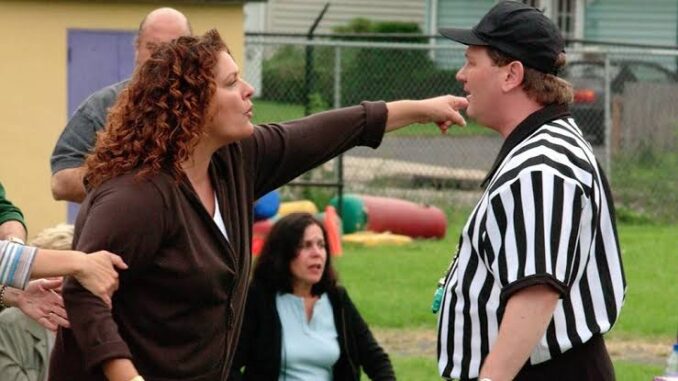
Two Chattanooga Area select Softball parents sue coach and referee for punishing their kids for disobeying the rules and regulations of the organization.
**Two Chattanooga Area Select Softball Parents Sue Coach and Referee for Punishing Their Kids for Disobeying Rules**
In a recent development within the Chattanooga youth softball community, two parents of select softball players have filed a lawsuit against a local coach and referee, alleging wrongful punishment of their children for alleged violations of league rules and regulations. The case has garnered significant attention from local sports organizations, parents, and community members, raising questions about authority, discipline, and fair play within youth sports.
According to court documents filed earlier this month, the parents — whose identities are being kept confidential pending further proceedings — claim that their children were subjected to unjust disciplinary actions by the coach and referee during a recent game. The parents allege that their kids were penalized excessively and unfairly for minor infractions, which the parents believe were either misinterpreted or exaggerated to justify punitive measures such as benching, warnings, or even ejections from the game.
The core of the lawsuit hinges on claims that the coach and referee overstepped their bounds and enforced disciplinary measures that were not consistent with the league’s rules or the principles of fair sportsmanship. The parents contend that the actions taken against their children caused emotional distress, embarrassment, and a diminished desire to participate in the sport. They also argue that their children’s rights to fair treatment and due process were violated during the incidents.
This legal action highlights ongoing tensions in youth sports regarding discipline and authority. Coaches and referees are tasked with maintaining order, ensuring safety, and promoting sportsmanship. However, the extent of their disciplinary powers and how they exercise them can sometimes lead to conflicts, especially when emotions run high or when decisions seem arbitrary. Critics argue that youth sports should prioritize education, teamwork, and character-building over punitive measures, which can sometimes have lasting negative impacts on young athletes.
The defendant coach, whose name has not been publicly disclosed, has issued a statement denying any misconduct, asserting that they acted within the league’s policies and aimed to uphold the integrity of the game. Similarly, the referee involved has maintained that they were simply enforcing the rules impartially and that any perceived overreach was unintentional.
League officials have expressed concern over the lawsuit, emphasizing their commitment to fair play and proper conduct. They have stated that they will review the incident thoroughly and cooperate with any investigations. Some community members have called for clearer guidelines and training for coaches and referees to prevent similar disputes in the future, emphasizing the importance of fostering a positive environment for young athletes.
Legal experts suggest that this case could set a precedent for how youth sports organizations handle disciplinary disputes and protect the rights of young players. It may also prompt leagues to reevaluate their policies and ensure that disciplinary actions are transparent, fair, and consistent with organizational standards.
As the case proceeds, it serves as a reminder of the delicate balance between authority and fairness in youth sports. While discipline is necessary for maintaining order, it must be administered thoughtfully to support the growth and well-being of young athletes. The outcome of this lawsuit could influence policies and practices in youth softball and other sports within the Chattanooga area and beyond, emphasizing the need for clarity, fairness, and respect in youth sports communities.
—
Leave a Reply